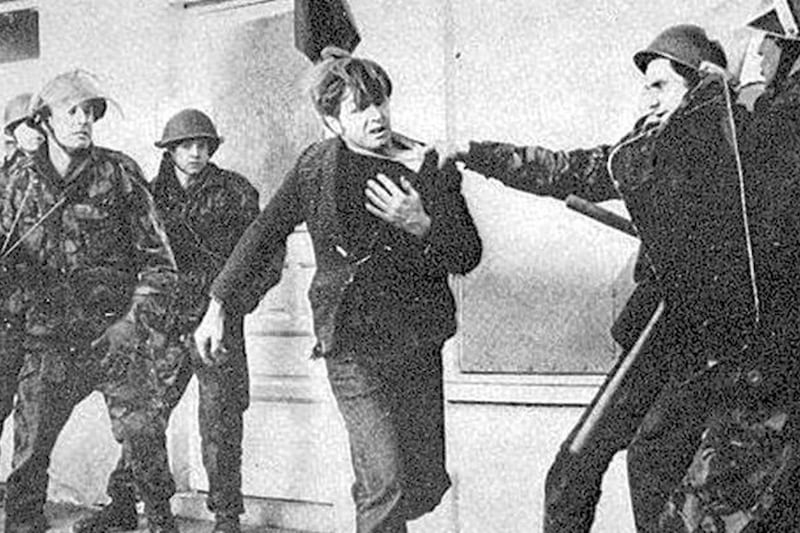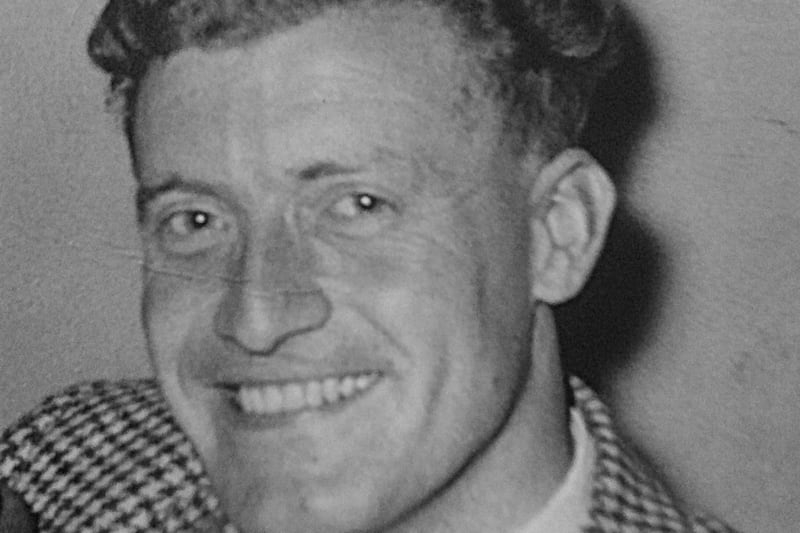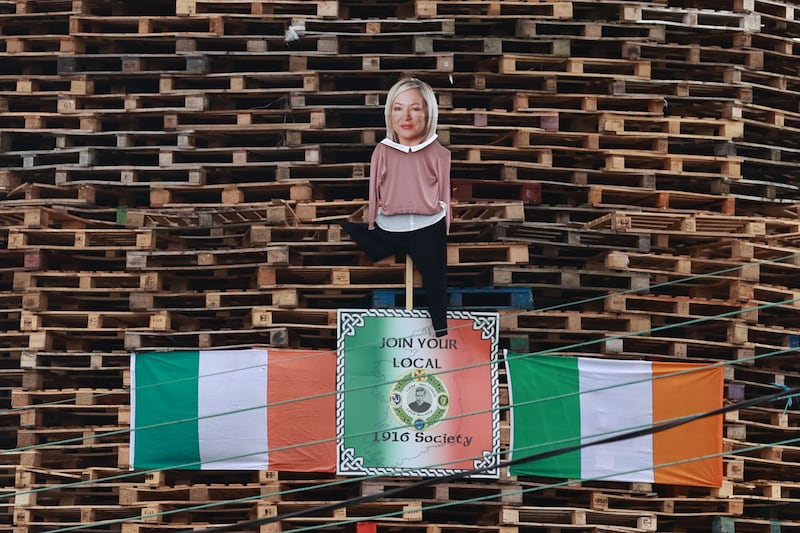It has been well documented that republicans, loyalists and the forces of the state were all guilty of ignoring the basic human rights of ordinary citizens throughout The Troubles.
What is striking is that, after all these years, some individuals seem to have enormous difficulty accepting that it is not just the paramilitary organisations which deserve to be held accountable for the full extent of their conduct.
The documentary Hooded Men - Britain's Torture Playbook, which screened on BBC1 in January, cast new light on the treatment of a group of 14 young men who all had clear records but were arrested and interned without trial in 1971, during an appalling period of cruel and entirely unjustifiable bloodshed across the board.
The programme sets out in graphic detail how members of the group which became known as the Hooded Men were taken from their homes by the British Army in the middle of the night, blindfolded and transported long distances by helicopter.
They were told they were hundreds of feet in the air and thrown out, only to find out after some agonising seconds that they were practically on the ground.
'Hooded Men' give first hand accounts of brutal experiences for new BBC documentary
Hooded Men: I still have nightmares after 50 years, says victim of interrogation
After being stripped naked and brutally beaten, they subjected over a nine-day period to what were known as the five techniques, which had been authorised at the highest levels and included hooding, adhering to stress positions, white noise, sleep deprivation and the refusal of food and drink.
General Anthony Farrar Hockley, a British Army commander at the time, told the BBC that the process produced ``a lot of good information, though of course relatively short term in value.''
An equally senior figure, General Mike Jackson, then a captain in the Parachute regiment, said that whether inflicting physical violence on prisoners could ever be acceptable was ``a very important question.``
General Jackson went on to suggest that he was not in a position to argue with the 14 men about their perceptions of what happened, claiming that philosophical as well as legal issues were involved, and said: "You might be better asking a bishop on such matters."
The contribution of the two generals was telling and it can be safely concluded that the Hooded Men have won every argument about their ordeal and proved conclusively that they were victims of state torture.
Today it emerged that hooded man Joe Clarke received a death bed apology from the PSNI over his treatment after he was interned more than 50 years ago.
The surviving members of the group also received an apology on Tuesday morning - 52 years later.
Mr Mackin, of Phoenix Law, was involved in negotiating the apology with the PSNI over the past 18 months.
“The Hooded Men have fought a 10 year campaign for justice," he said.
"Since their landmark victory before the Supreme Court in December 2021, we have engaged at the very highest level to try and find a resolution for our clients.
"Today, almost 18 months on, the PSNI have today issued our clients with a formal apology that recognises the torturous treatment to which our clients sustained. "
Mr Mackin said the publication of the apology comes after "after weeks of intense negotiation" which drew to a close in the days before Mr Clarke died.
"In the last days of his life, Mr Clarke was finally delivered closure in the form of an apology, for which he had long since campaigned," he said.
"This is a seismic development in a seismic case.
"Most importantly, in times of debate on how the legacy of the past should be addressed, we can and should forever point to the case of the Hooded Men as the pin up of due process, humanity and resolution coming together under one umbrella. This case is an example of why the efforts by the British government to brush the legacy of the past under the carpet will never, and can never, work."
Mr Mackin also paid acknowledged the role of the PSNI.
"Tribute ought to be paid to those at the upper echelons of the PSNI and in particular ACC (Alan) Todd and their legal advisor Mr Ian Saunders who despite the sensitivities engaged in an extensive negotiation, and against all odds, ensured the delivery of an apology before the passing of Mr Clarke.
"Today, those efforts must be acknowledged and appreciated in what is truly a landmark development.
"Mr Clarke was a larger than life character who had unrivalled generosity and charisma. This apology is a testament to that character and tenacity, in demonstrating that where there is a will; there is always a way.”







